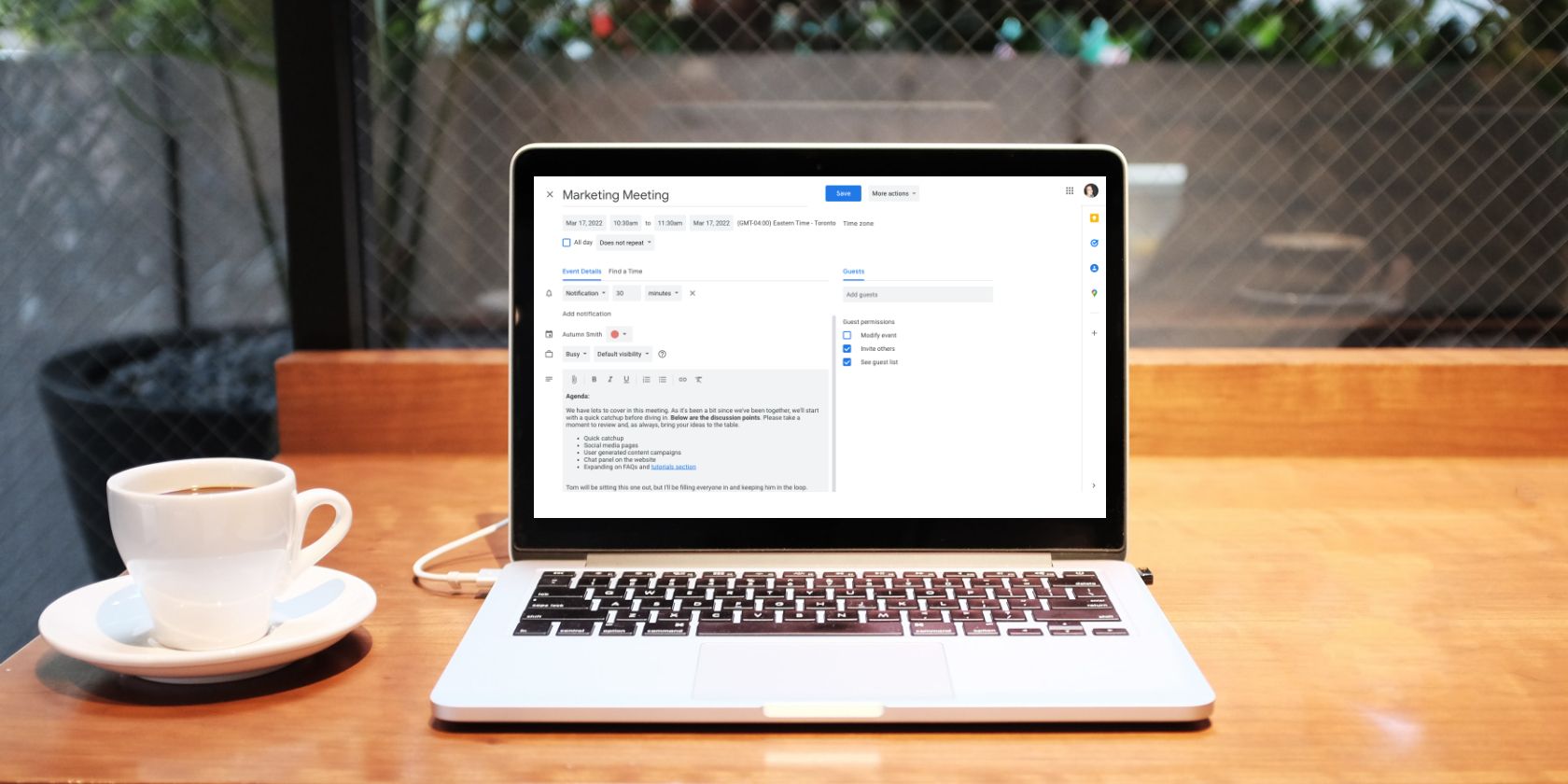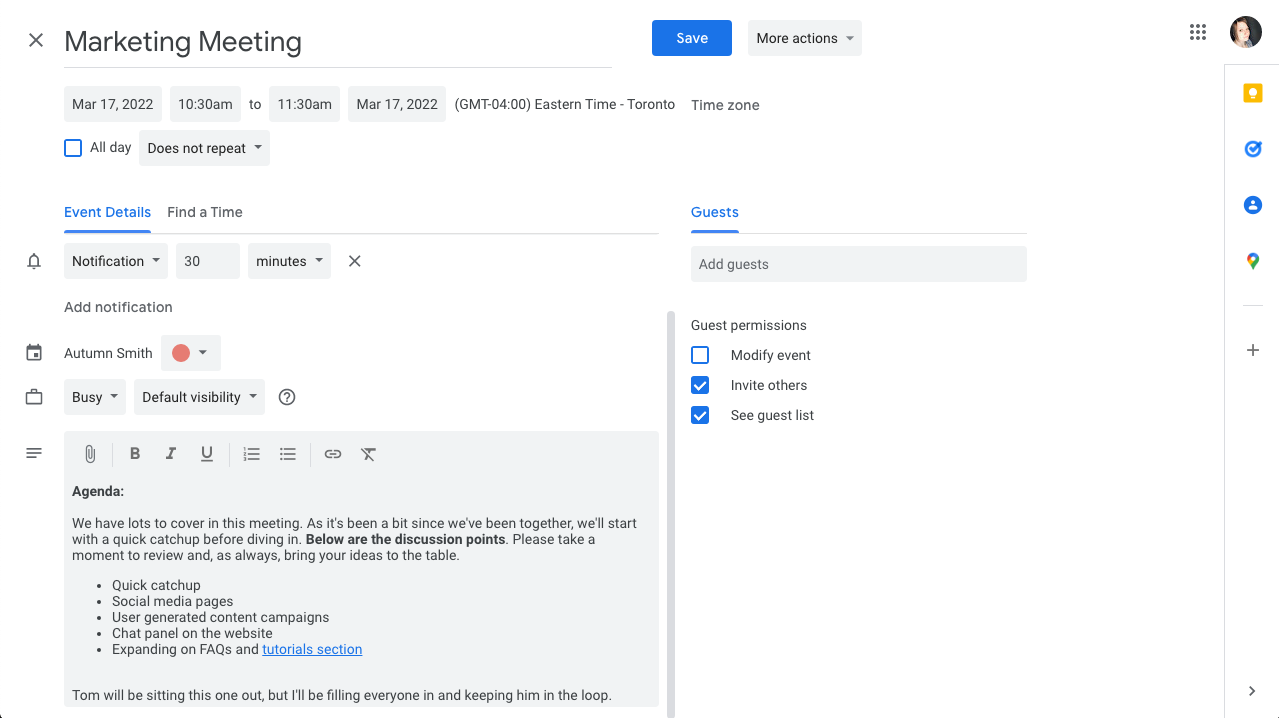Google Calendar is extremely versatile and user-friendly. There are many things it can do for you. Writing an agenda for your next meeting isn’t one. That’s up to you.
While jotting down the itinerary may seem like something you can skip, your invitees will be happier if you don’t. In fact, having no agenda may deter certain people from attending altogether. That's because they likely know meetings without one can often be aimless or get off track.
In this article, we’ll outline how you can add an effective meeting agenda to Google Calendar, with some quick pointers on how to write one.
How to Add a Meeting Agenda in Google Calendar
The quickest way to add an agenda to your event is by bringing up the event's quick setting menu right in your calendar and selecting Add description.
Alternatively, you can choose More options at the bottom of the menu to give yourself a little more space and tools to work with.
In either the quick or expanded menu, Google Calendar offers the right amount of formatting options to help you create an informative agenda. You can use bold to make important information stand out, bullet points to summarize talking points or objectives, and links and attachments to give your attendees access to more information.
If you fill this out before adding guests, they’ll see the description in the invitation, and know exactly what the meeting is about. You can also send out an update if you need to add or edit this later—a prompt will show up when you click the save button, or use the Google Calendar keyboard shortcut Cmd / Ctrl + S.
You don't need to outline every detail, just make sure you have enough information there to relay the purpose of the meeting and give it some direction. Doing this is one of many ways Google Calendar can help you boost your productivity.
Enjoy the Benefits of a Meeting Agenda
By sending the agenda in advance, you give your attendees a chance to prepare the thoughts and ideas they’d like to contribute to the discussion, which everyone will appreciate. You may also prevent the wrong people from attending—basically, those won’t benefit from or contribute to the matter.
Additionally, a well-organized agenda will keep you and the other attendees on track. If things get off-topic, you can politely reference the talking points you sent out to bring everyone’s focus back.


